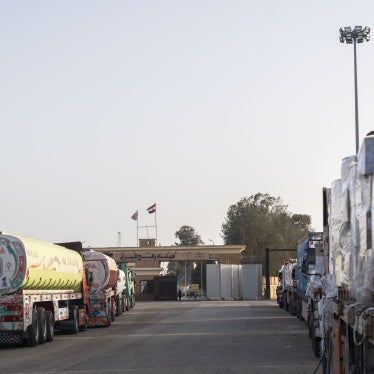If you are an Eritrean or Sudanese asylum seeker waiting to hear your fate, statistics suggest that in most countries you’ll get a positive reply: 83 percent of Eritreans and 67 percent of Sudanese going through asylum screening are accepted as refugees.
In Israel, however, your chances are close to nil.
Government statistics just released show that of 3,165 Sudanese asylum applications lodged since 2009, Israel has recognized a grand total of zero. Almost 2,200 of them are still waiting for an answer. Of 2,408 Eritreans who lodged asylum claims, 4 have received positive decisions. Another 1,000 requests have been denied and 1,335 are stuck in limbo awaiting a decision.
So what explains Israel’s foot-dragging and bottom ranking for Eritrean and Sudanese refugees?
A clue might be found in Prime Minister Benjamin Netanyahu’s response to Africans arriving in Israel, calling them “a threat to the social fabric of society, our national security, our national identity … and … our existence as a Jewish and democratic state.” The vast majority of the 63,000 Africans who entered the country before the end of 2012 – when a five-meter steel fence sealed off Israel’s border with Egypt – were Eritrean and Sudanese.
The authorities have steadily developed a range of coercive measures to “make their lives miserable” and “encourage the illegals to leave,” in the words of former Israeli Interior Minister Eli Yishai and current Israeli Interior Minister Gilad Erdan, respectively.
They include indefinite detention in remote desert centers – a policy that Israel’s High Court has struck down twice as unconstitutional – and obstacles to accessing Israel’s asylum system: Israel started to allow Eritreans and Sudanese to lodge asylum claims in significant numbers only in 2013. The obstacles also include ambiguous policies on work rights, severely restricted access to healthcare, and, yes, the rejection of a whopping 99.9 percent of Eritrean and Sudanese asylum claims.
As Human Rights Watch documented in a report, these policies have coerced thousands of Eritrean and Sudanese to return to their home countries. This breaches the international legal principle of nonrefoulement by forcing asylum seekers to choose between indefinite detention and returning to a place of feared persecution. As of mid-February 2015, about 8,000 had left, the vast majority Sudanese. Human Rights Watch found that on return, some have faced torture, arbitrary detention, and – in Sudan – treason charges for having set foot in Israel.
As the new shameful asylum statistics were released, the authorities confirmed that almost 2,000 Sudanese and Eritreans are still languishing in the Holot “Residency Center,” the legality of which is being challenged in the High Court for a third time as detention in all but name.
As the Israeli authorities tie themselves in legal knots trying to justify what amounts to a shredding of their responsibilities under international refugee law, Eritreans and Sudanese struggle to survive in Israel’s parallel “asylum” universe.









